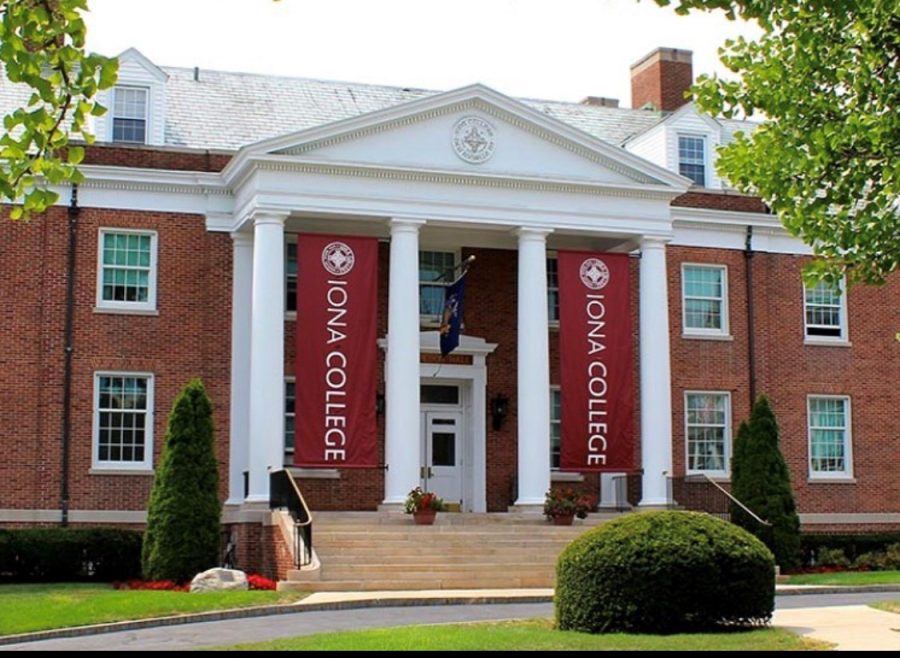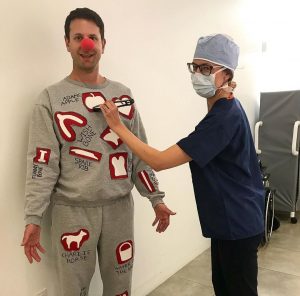‘Planning Your Academic Career’ seminar gives Gaels helpful insight
Photo from @ionacaas on instagram
Advsing Center hosts seminar to inform students of important deadlines and tips.
February 24, 2022
It is very common for students to initially choose the wrong major. Many are confused about what they should do with their career and choose what seems to be a good idea. Others are unaware that you have to officially declare your major with the head of the department in a meeting or through an email instead of just taking the classes. It is also very common for seniors to not know they have to take oral/written intensive courses along with the core. No worries, the Advising Center is here to help.
As part of the “Seminars for Success” workshops, Planning Your Academic Career was intended to help students succeed and get the most of their college experience. This seminar served as a refresher for those who always plan ahead, while freshmen and transfer students may have heard this information for the first time.
There are several full-time advisors. Ms. Laurie Winchell emails important dates, so it’s valuable to read her emails. Patti Ingraham, who led the seminar, is another advisor. Sean McDonald is the newest addition to the team. Although a student is designated an advisor in their department when they declare a major, the advising center is there for all four years.
Iona College is a liberal arts college, meaning graduating students will receive a liberal arts degree. On the diploma it will state that that you received one of three degrees: Bachelor of Arts, Bachelor of Science or Bachelor of Business Administration. The type of degree will be stated on the diploma, which has created some confusion when a student realizes they will not be getting a degree in Criminal Justice.
Like every college, Iona has a core curriculum which is the required courses of 15 different subjects that students have to take. A student’s major is their concentration of their degree. Some majors are stricter than others with pre-requisites and the sequence of courses. For instance, some required courses will only be offered in the spring. Regardless, finance and bio-chem majors alike have to choose from a selection of courses to fulfill the core. Most students take about two years to complete their core unless they have received college credit or got a certain score on AP tests. For business majors, the core looks a little different. There is a general business core that students have to take while deciding in which area they would like to concentrate.
Although most students want to be done with the core during the beginning of college, Ingraham advises them to be mindful. She suggests taking courses that interest you, splitting the courses of those you want to take and those you have to take.
“Realistically, you will be taking core courses until your senior year,” said Ingraham “Do not leave them all for one semester. Take one each term.”
To graduate, students have to take 120 credits. Many students have the misconception that once students are done with the core and major requirements they cannot graduate earlier. This is not true. No matter what major a student has declared they must have 120 credits combined from Iona and/or college credit earned in high school or transfer credits. For students who are unsure of what they want to major in, this means they have time to decide.
Electives are an amazing way to delve into topics in which students are interested. A student who is undeclared can test the waters by taking introductory classes until they find their match. Regardless of major, students can take courses for fun while earning credit. Many students use electives to fulfill a double major or a minor. Some majors have more leeway for a number of electives that students could take, so it’s best to check your degree audit to make sure you have room for a course. All students must declare a major by their second semester of sophomore year.
Advising is required every single semester regardless of standing and major. Students should be responsible for what they need to graduate on time. The more questions you have for the Advising Center, the more helpful the visit.
Around this time in the semester, students may fear they might fail a class due to bombing a test or having too many absences. If necessary, students might need to withdraw from a course. However, to do so they must come to the Advising Center to talk about it. A student cannot simply email out or go on PeopleSoft. However, withdrawing from a course does not mean you no longer have to worry about that course. If you withdraw from a course and retake the same course at a different time it is the same credit. Withdrawing from a course can delay gradation. If you withdraw from a course, it is recommended to ask your advisor if you are on track for graduation.
Finally, many students are not aware of the multiple resources available to them. The Counseling Center, Career Center and the Rudin Tutoring Center are all here for student success. These services are free of charge and are open are students to pop in whenever it is convenient for both parties.




